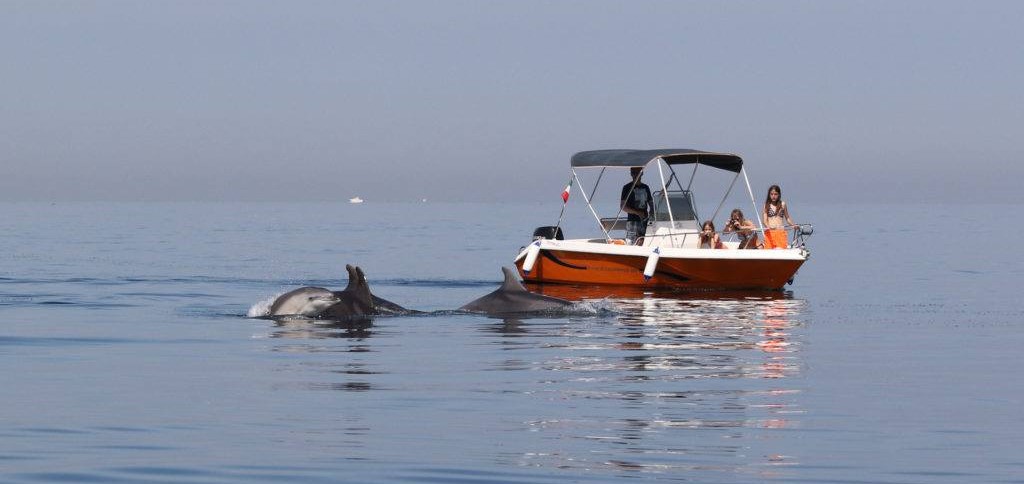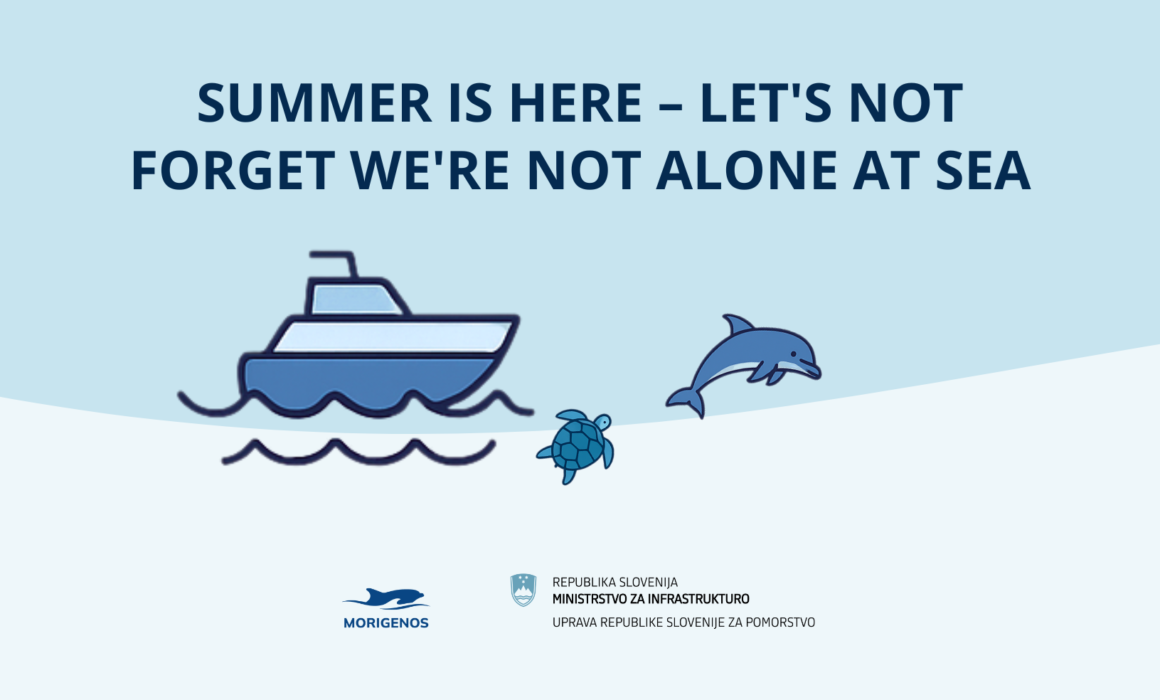12-06-2025
Summer is here – let’s not forget we’re not alone at sea
Summer is here!
let’s not forget we’re not alone at sea
With the start of the summer season, the number of vessels and visitors along the coast increases, significantly impacting the marine ecosystem and the wildlife that shares this space with us. Morigenos and the Maritime Administration of the Republic of Slovenia are therefore highlighting the importance of respectful and responsible conduct at sea.
The marine area off the Slovenian coast represents a vital habitat for numerous marine species. Among them is a resident population of bottlenose dolphins (Tursiops truncatus), which use this area for feeding, reproduction, and resting. During the summer months, newborn calves are often present, making the animals especially vulnerable. From late spring to autumn, loggerhead sea turtles (Caretta caretta) are also regularly observed in this area – mostly younger individuals that rely on this environment as an important feeding and developmental habitat.
During this period, marine ecosystems face increased pressures due to heightened maritime traffic, greater volumes of plastic waste, and rising underwater noise levels. Vessels generate noise that interferes with animals’ orientation and communication – in dolphins, this can lead to separation between mother and calf when vocal contact is disrupted. Additionally, the high density of fast-moving vessels raises the risk of collisions, which can be fatal for dolphins and turtles alike.
The sea is not only a place of recreation for humans, but also a complex and sensitive habitat for many species. By caring for it properly, we ensure that we too can continue to enjoy a clean and healthy sea.

Dr. Tilen Genov,
Morigenos
How can you contribute to the safety of marine animals?
Reduce your speed
● Lower speeds reduce the risk of striking dolphins or turtles – especially vulnerable calves near the surface.
● Slower navigation also decreases underwater noise pollution.
If you spot dolphins
● Do not approach them directly – navigate slowly and parallel to their direction.
● If possible, keep your engine in neutral or switch it off.
● Do not chase dolphins – if they wish to approach, they will.
● Avoid sudden changes in speed or direction.
● Maintain a distance of at least 100 metres.
● Do not approach groups with calves.
● Do not feed or attempt to swim with dolphins.
● Limit your presence to 15 minutes.
● Report sightings of live, stranded, or deceased dolphins to Morigenos: +386 (0)31 77 10 77.
Do not litter
● Plastic waste endangers marine life – turtles, birds, and dolphins may ingest it or become entangled, leading to painful death.
● Plastic degrades into microplastics, which enter the food chain – including ours.
Respect navigational and environmental rules
● Avoid entering protected zones where navigation is prohibited.
● Anchor only in permitted areas – use designated buoys or moorings to prevent seabed damage.
Treat animals with care
● Animals also feel fear and pain.
● Handle snails, crabs, jellyfish, and other coastal animals gently and respectfully.
● If you see injured or stranded turtles, call 112 immediately.
Respecting navigation rules and appropriate behaviour at sea is not only a matter of environmental protection but also of human safety. High-speed boating near the shore or in protected areas endangers both marine species and swimmers. Responsible conduct reflects our respect for the shared space we inhabit – with other people and with sensitive, often threatened species.
Jadran Klinec
Director of the Slovenian Maritime Administration
By acting responsibly, we help protect safe habitats for marine animals and maintain a pleasant environment for ourselves. This ensures that we can continue to enjoy the sea – safely, respectfully, and in harmony with nature.



